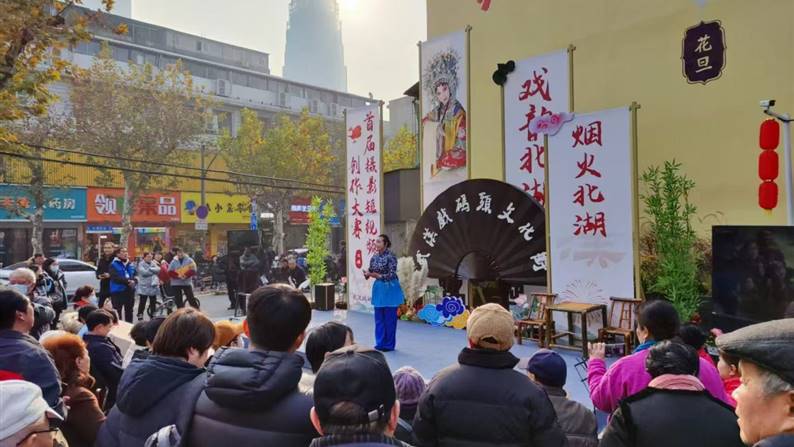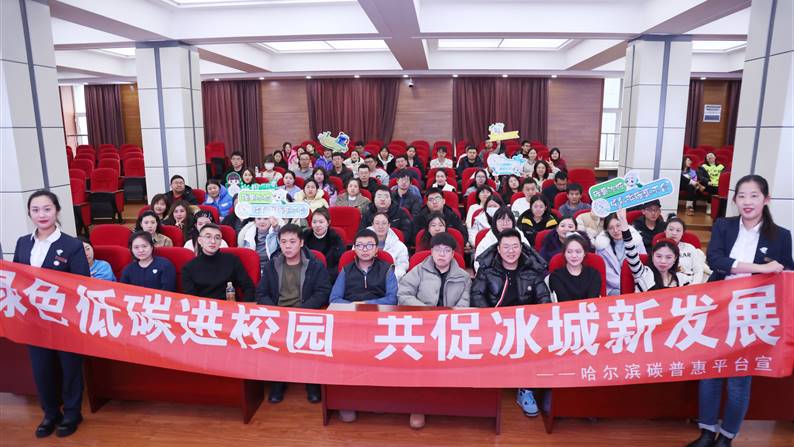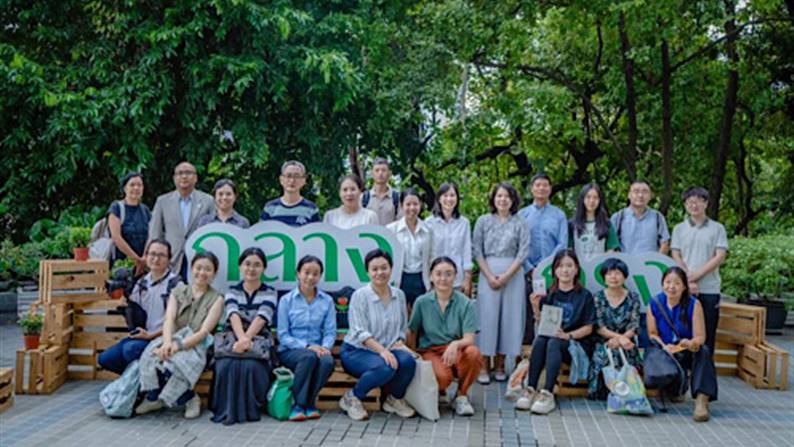

As a global technology group that integrates five major sectors: smart home, industrial technology, building technology, robotics and automation, and innovative business, Midea Group has recently successfully passed the review of the United Nations Global Compact Office and officially joined the United Nations Global Compact.
The United Nations Global Compact is the world's largest international organization promoting sustainable business development, and the concept of Environmental, Social and Governance (ESG) was first proposed by UNGC. The organization has over 20000 business and other stakeholder members from nearly 170 countries, who are committed to fulfilling the ten principles of the Global Compact based on United Nations conventions, covering labor standards, environment, and anti-corruption. The United Nations Global Compact continues to assist businesses in integrating the ten principles of the Global Compact into their strategies and operations, working together through cooperation and partnerships to achieve broader United Nations goals, addressing various challenges in the process of globalization, advancing the achievement of broader development goals, and accelerating the global sustainable development process.
Global breakthrough is one of the four strategic axes of Midea Group. Joining the United Nations Global Compact is an important measure for Midea Group to practice corporate social responsibility and promote sustainable development. It is also an important manifestation of Midea Group's acceleration of global breakthroughs and enhancement of brand international influence. So far, Midea has approximately 200 subsidiaries, 35 research and development centers, and 40 major production bases worldwide, covering more than 200 countries and regions. Among them, there are 20 research and development centers and 21 main production bases overseas, spread across more than ten countries, with about 30000 overseas employees and 22 settlement currencies.
In terms of environmental governance, Midea Group takes "green strategy" as its core, actively advocates the concept of green development, and promotes energy conservation and emission reduction throughout the entire industry chain. In 2021, Midea Group released its green strategy for the first time and committed to achieving internal carbon peak by 2030 and moving towards carbon neutrality by 2060. It actively integrated into the national "dual carbon" strategy and carried out work around the six pillars of "green design, green procurement, green manufacturing, green logistics, green recycling, and green services". In May 2022, Midea Group officially established the ESG Committee, responsible for promoting the group's ESG related work, clarifying various ESG affairs and incorporating them into the annual key work plans of various departments, firmly promoting green development, integrating green environmental protection concepts into the entire product lifecycle, and committed to driving the green development of the industrial chain.
In April 2023, Midea Group officially released its second ESG report for 2022. The report was written with reference to the 17 new development goals of the United Nations Sustainable Development Goals, which aim to comprehensively address development issues in the social, economic, and environmental dimensions from 2015 to 2030, and shift towards a sustainable development path. The 17 Sustainable Development Goals are also widely used by enterprises as important guiding tools for ESG reporting.
Midea Group's 2022 ESG report shows that last year Midea successfully registered and released the world's first air conditioning environmental product declaration, obtaining an internationally recognized "green ID card". In terms of emission reduction effectiveness, Midea Group's total greenhouse gas emissions decreased by over 200000 tons last year compared to 2021. As of now, Midea Group has established a total of 14 national level green factories, achieving an annual photovoltaic power generation of 215 million kilowatt hours in 2022, an increase of 48.06% compared to 2021; Participated in the formulation of 110 national, industry, and other green standards. In 2022, Midea Group was rated AA in the ESG rating of the CSI Index.
The current climate change situation is severe, and global warming is occurring at an unprecedented rate. Dealing with climate change has become an international consensus, and governments, businesses, social organizations, and others are taking active actions to significantly reduce global greenhouse gas emissions. In order to enhance its ability to respond to climate change, Midea Group has incorporated climate change risks into its overall risk assessment and management system. In 2022, Midea will preliminarily identify and analyze the potential risks brought about by climate change from both physical and transformation risks, and develop response measures for the identified risks to enhance our adaptability to climate change.
For example, sudden natural disasters caused by climate change may not only result in direct economic losses and additional facility maintenance costs, but may also reduce the functions and services that infrastructure can provide. In daily operations, Midea Group comprehensively evaluates the impact of potential natural disasters on infrastructure, and improves its emergency response capabilities by developing relevant risk emergency plans, conducting equipment safety inspections, and conducting emergency drills. Integrating climate risks into early planning, design, construction, and operation of infrastructure, utilizing advanced technologies such as digitization and intelligence to enhance the adaptability of infrastructure to climate change.
Faced with chronic climate risks such as persistent high temperatures, droughts, and rising sea levels, when selecting office areas and production parks, full consideration should be given to natural conditions such as geography and climate, and the potential impact of natural factors on production, warehousing, and employee working conditions should be evaluated. By adopting automated/digital equipment, improving production processes, and other measures to reduce the impact of human and natural factors on production efficiency, we will continue to pay attention to the energy structure of operating areas, promote energy-saving measures, and attach importance to the development and application of energy-saving and emission reduction technologies. Developing and applying green and low-carbon technologies throughout the entire product lifecycle, continuously improving energy efficiency and increasing the proportion of clean energy, reducing the energy usage rate of production units, promoting green design, laying out green and low-carbon technologies, researching and developing green products, and meeting the expectations of the market and consumers for green products.
In addition, the company adheres to the basic principles of integrity, law-abiding, integrity, and compliance, and constructs a modern corporate governance mechanism. We regard ESG management as a part of the company's development strategy, fully integrating ESG work into business operations and management. At the same time, we will organically integrate the concept of social responsibility with supply chain management to create a sustainable supply chain system. In the process of practicing social responsibility, it is important to attach importance to communication with stakeholders, establish normalized communication mechanisms and interactive methods, and regularly respond to various interests in an open and transparent manner. Continuously enhancing the awareness of green supply chain management, proposing clear corporate social responsibility requirements for suppliers in procurement, manufacturing, sales, recycling, and logistics, effectively controlling the potential risks of the supply chain in environmental and social aspects, building a green supply chain system, and collaborating with suppliers to create a better life and future for consumers.
Green development is a cutting-edge topic in world development and a key link for enterprises to achieve high-quality development. On the path of practicing sustainable development, Midea will work together with over 22000 corporate members from 170 countries and over 3000 other stakeholders in the organization to promote global sustainable development, strengthen green development cooperation, promote green technology innovation, and create a greener, more beautiful future!作为一家集智能家居、工业技术、楼宇科技、机器人与自动化、创新型业务五大板块为一体的全球化科技集团,美的集团近日成功通过联合国全球契约办公室审核,正式加入联合国全球契约组织(UN Global Compact)。
联合国全球契约组织(UN Global Compact)是世界上最大的推进企业可持续发展的国际组织,ESG(Environmental,
Social and Governance)
的概念最早便由UNGC提出。组织拥有来自近170个国家的两万多家企业和其他利益相关方会员,这些会员承诺履行以联合国公约为基础的,涵盖劳工标准、环境和反腐败领域的全球契约十项原则。联合国全球契约组织持续帮助企业将全球契约十项原则整合到其战略和运营中去,通过合作与伙伴关系共同推进更广泛的联合国目标的实现,共同应对全球化进程中的各种挑战,推进更广泛的发展目标实现,加速引领全球可持续发展进程。
全球突破是美的集团四大战略主轴之一。加入联合国全球契约组织,是美的集团践行企业社会责任,推动实现可持续发展的一项重要举措,同时也是美的集团加速全球突破、提升品牌国际影响力的重要体现。迄今,美的在全球拥有约200家子公司、35个研发中心和40个主要生产基地,业务覆盖200多个国家和地区。其中,在海外设有20个研发中心和21个主要生产基地,遍布十多个国家,海外员工约3万人,结算货币达22种。
在环境治理方面,美的集团以“绿色战略”为核心,积极倡导绿色发展理念,推进全产业链的节能减排。2021年,美的集团首次发布绿色战略,并承诺在 “2030年前实现企业内部碳达峰,2060年前迈向碳中和”,主动融入服务国家“双碳”战略大局,围绕“绿色设计、绿色采购、绿色制造、绿色物流、绿色回收、绿色服务”六大支柱开展工作。2022年5月,美的集团正式成立ESG 委员会,负责推进集团ESG 相关工作,明确ESG 各项事务并纳入各部门年度重点工作计划中,坚定持续推动绿色发展,将绿色环保理念融入产品的全生命周期,致力带动产业链绿色发展。
2023年4月,美的集团正式发布2022年度ESG报告,这也是美的集团发布的第二份ESG报告。报告的编写参考了联合国可持续发展目标(Sustainable
Development
Goals)的17个新发展目标,即可持续发展目标旨在从2015年到2030年间以综合方式彻底解决社会、经济和环境三个维度的发展问题,转向可持续发展道路。17个可持续发展目标也是目前企业普遍使用的、作为ESG报告的重要指导工具。
美的集团2022年度ESG报告显示,去年美的成功注册并发布了全球首个空调环境产品声明,拿到国际公认的“绿色身份证”。在减排成效上,美的集团去年温室气体排放总量较2021年减少超过20万吨。截至目前,美的集团累计建立国家级绿色工厂14家,2022年实现年度光伏发电量2.15亿度,较2021年增长48.06%;参与110项国家、行业等绿色标准制定。2022 年,美的集团在中证指数ESG 评级中评级结果为AA。
当前气候变化形势严峻,全球变暖正以前所未有的速度发生。应对气候变化已成为国际共识,政府、企业、社会组织等都在采取积极行动,力争大幅减少全球温室气体排放。为了提升应对气候变化的能力,美的集团将气候变化风险纳入公司整体风险评估和管理体系。2022 年,美的从实体风险和转型风险两方面初步识别、分析气候变化带来的潜在风险,并为识别出的风险制定应对举措,提升我们对气候变化的适应能力。
例如,由气候变化引起的突发自然灾害,除了导致直接经济损失和额外的设施运维成本,还可能减少基础设施所能提供的功能和服务。在日常运营工作中,美的集团全面评估可能突发的自然灾害对基础设施的影响,通过制定相关风险应急预案、开展设备安全巡检和应急演练等,提高应急抗灾能力。将气候风险纳入基础设施的早期规划、设计、建设、运维等,利用数字化和智能化等先进技术手段,提升基础设施对气候变化的适应性。
面对持续性的高温、干旱、海平面上升等慢性气候风险,在办公区域和生产园区选址时充分考虑地理、气候等自然条件,评估自然因素对生产、仓储、员工工作条件等可能带来的影响。通过采用自动化/
数字化设备、改进生产作业流程等减少人为和自然因素对生产效率的影响,持续关注运营地区能源结构,推广节约用电措施、重视节能减排技术开发应用。从产品全生命周期开发应用绿色低碳技术,不断改善能源效率并提高清洁能源占比,减少生产单位产品对能源的使用率,推进绿色设计,布局绿色低碳技术、研发绿色产品,满足市场与消费者对绿色产品的期待。
此外,公司秉持诚信、守法、廉洁、合规的基本原则,构建现代化的企业治理机制,我们将ESG 管理作为公司发展策略的一部分,将ESG工作全面纳入业务运营及管理中。同时,我们将社会责任理念与供应链管理进行有机融合,打造可持续的供应链体系。在践行社会责任的过程中,重视与利益相关方的沟通,建立常态化的沟通机制与互动方式,并定期以公开透明的方式回应各利益。不断强增强绿色供应链管理意识,对供应商在采购、制造、销售、回收及物流环节提出明确的企业社会责任要求,有效管控供应链在环境、社会等方面的可能产生的风险,打造绿色供应链体系,协同供应商一起为广大消费者创造美好生活和未来。
绿色发展是世界发展的前沿课题,也是企业实现高质量发展的关键环节。在践行可持续发展的道路上,美的将与该组织中来自170个国家的超过22000家企业会员和3000多家其他利益相关方会员一道,共同推进全球可持续发展,加强绿色发展合作,促进绿色科技创新,共创一个更绿色、更和美的未来!

打造绿色低碳街区,奏响幸福美好生活最强音
10-18 · 来源:湖北省武汉市江汉区北湖街道环保社区 · 作者:湖北省武汉市江汉区北湖街道环保社区

“碳惠冰城”:东北首个市级平台的“双碳”实践与冰城示范
10-15 · 来源:哈尔滨产权交易所有限责任公司 · 作者:哈尔滨产权交易所有限责任公司

亚洲气候治理新篇章:中国公益代表团参访曼谷气候周,探索跨区域合作新路径
10-10 · 来源:公益时报 · 作者:公益时报